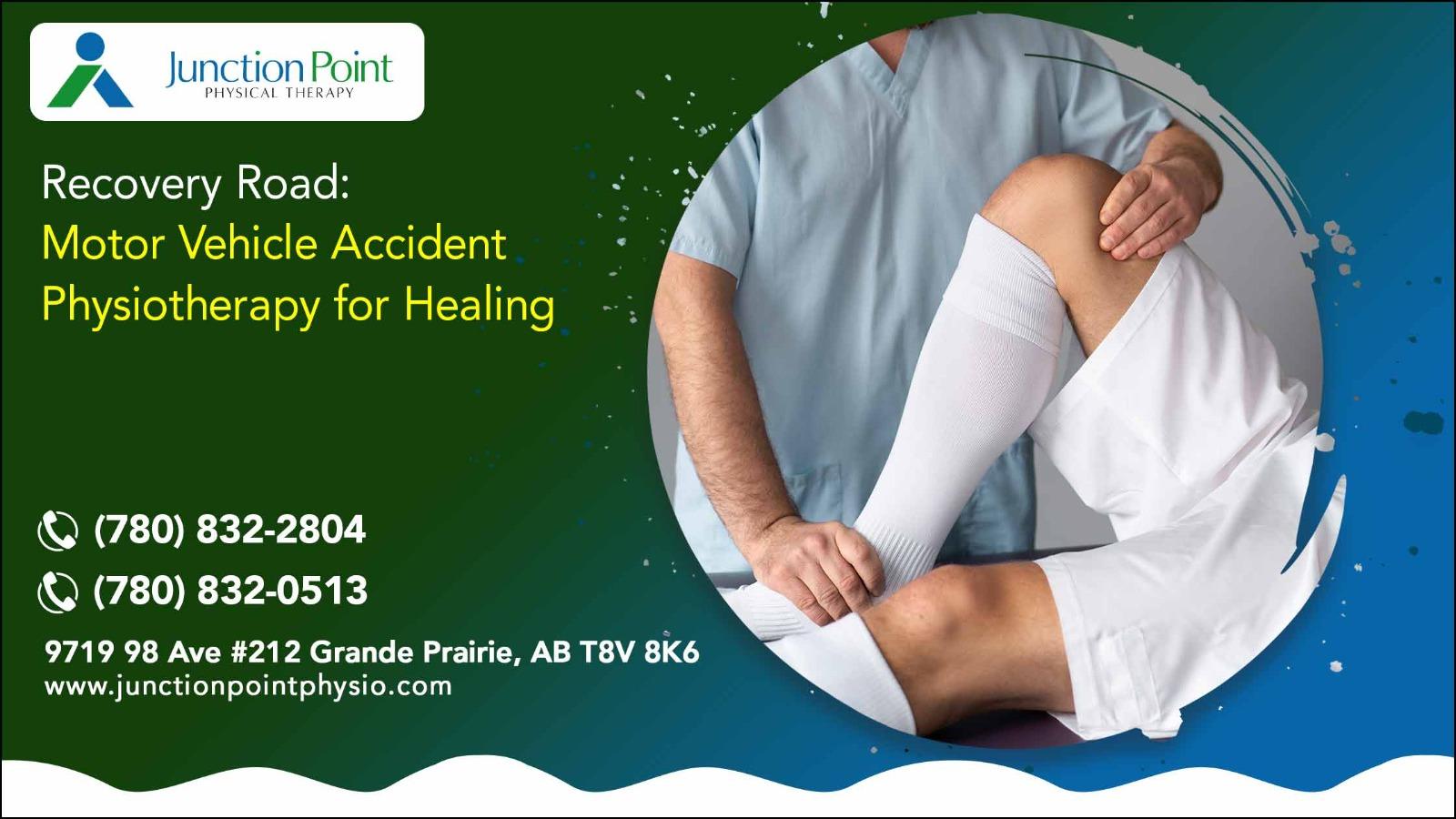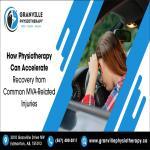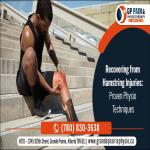Recovering from a motor vehicle accident involves more than just healing physical injuries; it's a journey that encompasses regaining strength, mobility, and confidence. At Junction Point, Physical Therapy, the focus on motor vehicle accident physiotherapy Grande Prairie is designed to support individuals through every step of their recovery. This guide delves into the crucial role of car accident physiotherapy in facilitating a comprehensive and effective healing process.
Understanding Motor Vehicle Accident Physiotherapy
Motor vehicle accidents could lead to a variety of physical and psychological challenges. Car accident physiotherapy is a specialized area of physical therapy that addresses injuries sustained in vehicular accidents. Physiotherapists are equipped to handle the complex needs arising from such incidents, providing tailored treatment plans for each individual.
The Role of Early Intervention
Early intervention following a car accident is vital for optimal recovery. Physiotherapists emphasize initiating treatment promptly to prevent long-term complications. Commencing therapy early can markedly lessen symptom intensity and establish a foundation for a quicker and more effective recovery journey.
Personalized Rehabilitation Programs
Each individual’s experience and injuries from a motor vehicle accident are unique. Consequently, therapists create personalized rehabilitation programs. These programs are tailored to the specific injuries and goals of the patient, ensuring a recovery plan that is as unique as their needs.
Transformative Healing: The Various Approaches in Motor Vehicle Accident Physiotherapy
Pain Management Modalities
Techniques such as electrical stimulation (e.g., TENS), ultrasound therapy, manual therapy, and heat/cold therapy may be utilized to manage pain and reduce inflammation.
Vestibular Rehabilitation
For patients experiencing dizziness or balance issues after an injury to the head or concussion, vestibular rehabilitation is crucial.
Neurological Rehabilitation
In cases of traumatic brain injuries or neurological impairments following an accident, neurological rehabilitation is employed.
Exercise Therapy
Customized exercise programs are designed to strengthen injured muscles, improve flexibility, and enhance overall stability.
Scar Tissue Management
After surgeries or deep tissue injuries from accidents, scar tissue can form, which may limit mobility and cause discomfort. Physiotherapists use techniques like soft tissue mobilization, massage, and stretching to manage and reduce scar tissue formation.
Functional and Mobility Training
Restoring functional mobility is a key goal of physiotherapy post-accident. This includes training in daily life activities, gait training, and balance exercises to ensure that patients can safely perform their regular tasks and enjoy a good quality of life.
Common Injuries and Their Management
1. Whiplash and Neck Injuries
One of the most common injuries from a car accident is whiplash, a neck injury due to rapid back-and-forth movement. Physiotherapy helps in managing pain, reducing stiffness, and restoring range of motion through specific exercises, manual therapy, and posture education. Treatment aims to speed up recovery, prevent chronic pain, and improve neck function.
2. Back Injuries and Spinal Rehabilitation
Motor vehicle accidents often result in back injuries, ranging from mild strains to more severe spinal issues. Physiotherapy focuses on alleviating back pain, strengthening back muscles, and improving flexibility. This includes spinal stabilization exercises and techniques to support spinal alignment and health.
3. Soft Tissue Injuries
Accidents can cause soft tissue injuries like bruises, sprains, and strains. Physiotherapy employs techniques like massage, ultrasound, and specific exercises to reduce swelling, enhance healing, and restore function in the affected tissues.
4. Fractures and Orthopedic Rehabilitation
In cases of fractures, physiotherapy plays a crucial role post-casting or surgery. Rehabilitation focuses on regaining strength, mobility, and function in the injured area. This often involves joint mobilization, strength training, and functional exercises to ensure a safe return to daily activities.
5. Traumatic Brain Injuries and Concussions
Physiotherapy can be beneficial for individuals who have experienced a concussion or traumatic brain injury. Treatment may involve vestibular rehabilitation for balance issues, exercises to reduce dizziness, and strategies to manage symptoms like headaches.
6. Chronic Pain Management
Long-term pain management is a critical aspect of recovery from motor vehicle accidents. Physiotherapy helps in managing chronic pain through various modalities, including pain-relief exercises, manual therapy, and education on pain management techniques.
7. Rehabilitation for Limb Injuries
Motor vehicle accidents often result in limb injuries, such as fractures, dislocations, or muscle tears. Physiotherapy plays a crucial role in rehabilitating these injuries by restoring strength, flexibility, and coordination. Treatment may include joint mobilization, resistance training, and functional exercises tailored to the specific limb affected.
8. Recovery from Seatbelt and Airbag Injuries
Seatbelts and airbags, while lifesaving, can cause specific injuries during a motor vehicle accident, such as chest or abdominal bruising and shoulder strains. Physiotherapy helps in treating these unique injuries through targeted exercises, manual therapy, and pain management techniques. The focus is on reducing discomfort, promoting healing in the affected areas, and restoring full functionality, enabling individuals to move past the traumatic experience and regain their normal lifestyle.
Psychological and Emotional Support
The impact of a motor vehicle accident is not just physical; it can also be psychological. Physiotherapy supports the emotional well-being of patients by encouraging gradual return to activities, reducing fear-avoidance behavior, and providing coping strategies for anxiety related to accidents.
Navigating the Path to Recovery with Quality Care
The journey to recovery after a motor vehicle accident can be challenging, but with the right support and expert care, it becomes a road to renewed strength and wellness. Motor vehicle accident physiotherapy at Junction Point Physical Therapy Grande Prairie, offers a compassionate, comprehensive approach to healing, ensuring that every patient can navigate their recovery with confidence and achieve the best possible outcomes.
Also read about:
Investing in Brilliance The Importance of Tesla Paint Protection Films
Recovering from Hamstring Injuries Proven Physio Techniques
How Physiotherapy Can Accelerate Recovery from Common MVA Related Injuries










